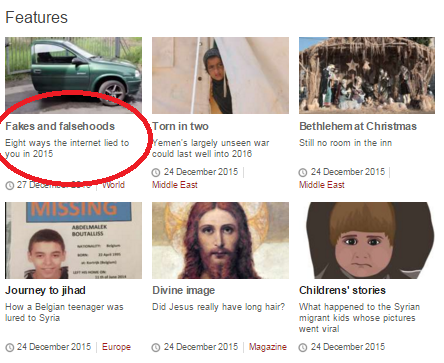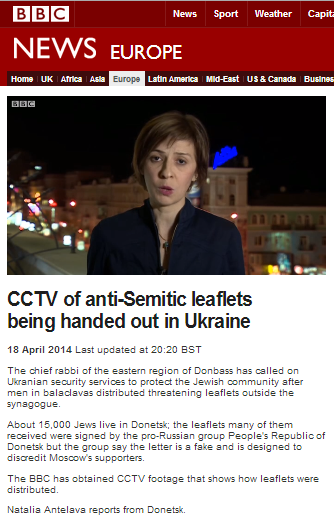Just over an hour after a terror attack took place in Har Adar on September 26th the BBC News published its first report on the incident under the superfluously punctuated headline “Palestinian gunman ‘kills three Israelis’ in West Bank”.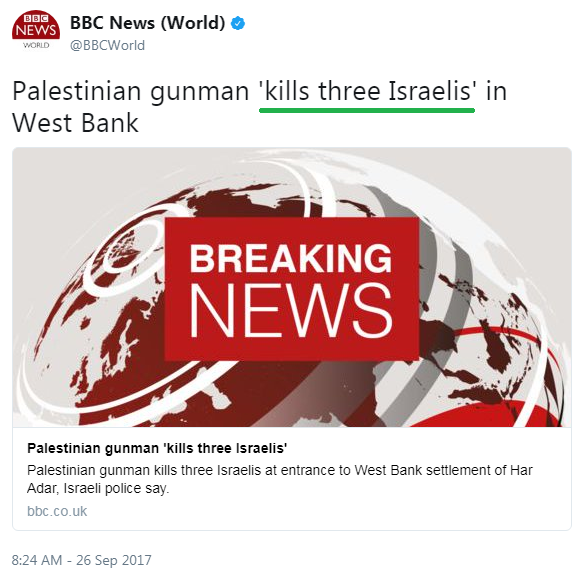
Over the next six hours numerous amendments were made to that report as information emerged but – in line with usual BBC policy – none of its versions described the incident as terrorism or the attacker as a terrorist.
From its second version, readers of the report found promotion of PLO messaging in what has over the past two years been a standard insert in BBC reports on attacks against Israelis.
“Israel says Palestinian incitement has fuelled the attacks. The Palestinian leadership has blamed frustration rooted in decades of Israeli occupation.”
From version five onward, readers also found standard – though partial – BBC messaging on the topic of ‘settlements’.
“The issue of settlements is one of the most contentious between Israel and the Palestinians, who see them as an obstacle to peace.
More than 600,000 Jews live in about 140 settlements built since Israel’s 1967 occupation of the West Bank and East Jerusalem. The settlements are considered illegal under international law, though Israel disputes this.”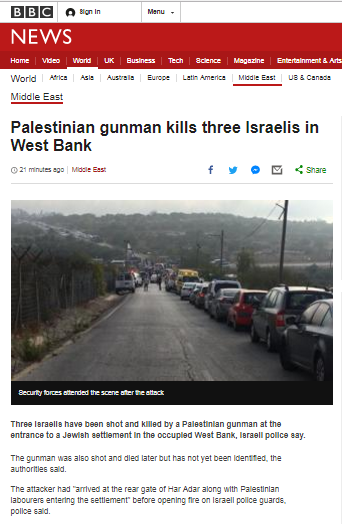
From version six onward readers found yet another mantra which, although frequently promoted by the BBC, fails to provide audiences with the information and background necessary for full understanding of the reasons for the breakdown of that round of negotiations.
“Peace talks between the two sides broke down amid acrimony in April 2014.”
Later versions of the article included a version of a previously used partisan map credited to UNOCHA and the political NGO B’tselem.
The BBC’s report notes praise for the terror attack from Hamas and the PIJ:
“No group has taken responsibility for the attack, although Gaza-based Palestinian militant organisations Hamas and Islamic Jihad welcomed it.”
Fatah’s reaction is portrayed by the BBC as follows: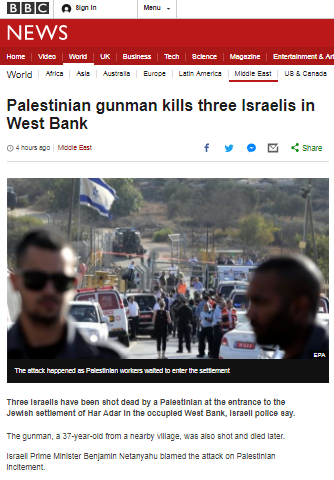
“The head of the Information Office of Fatah, the political faction of Palestinian President Mahmoud Abbas, said Israel bore responsibility for the attack, because of its “continuous aggression” against the Palestinians.”
BBC audiences were not told of Fatah’s glorification of the terrorist – “A morning scented with the fragrance of the Martyrs” – and threats of additional violence. Nor were they informed of the relevant issue of the Fatah-led Palestinian Authority’s scheme of financial rewards for terrorists.
While the BBC’s report names the terrorist and provides some of his personal details, despite the fact that by 1 p.m local time the names of all three of the murdered victims had been released for publication, the BBC did not update its article to inform audiences of their names: Border Policeman Solomon Gavriyah, aged 20 from Be’er Ya’akov and civilian security guards Youssef Ottman from Abu Ghosh and Or Arish of Har Adar, both aged 25.
Related Articles:
Revisiting the BBC’s policy on naming and personalising victims of terror



